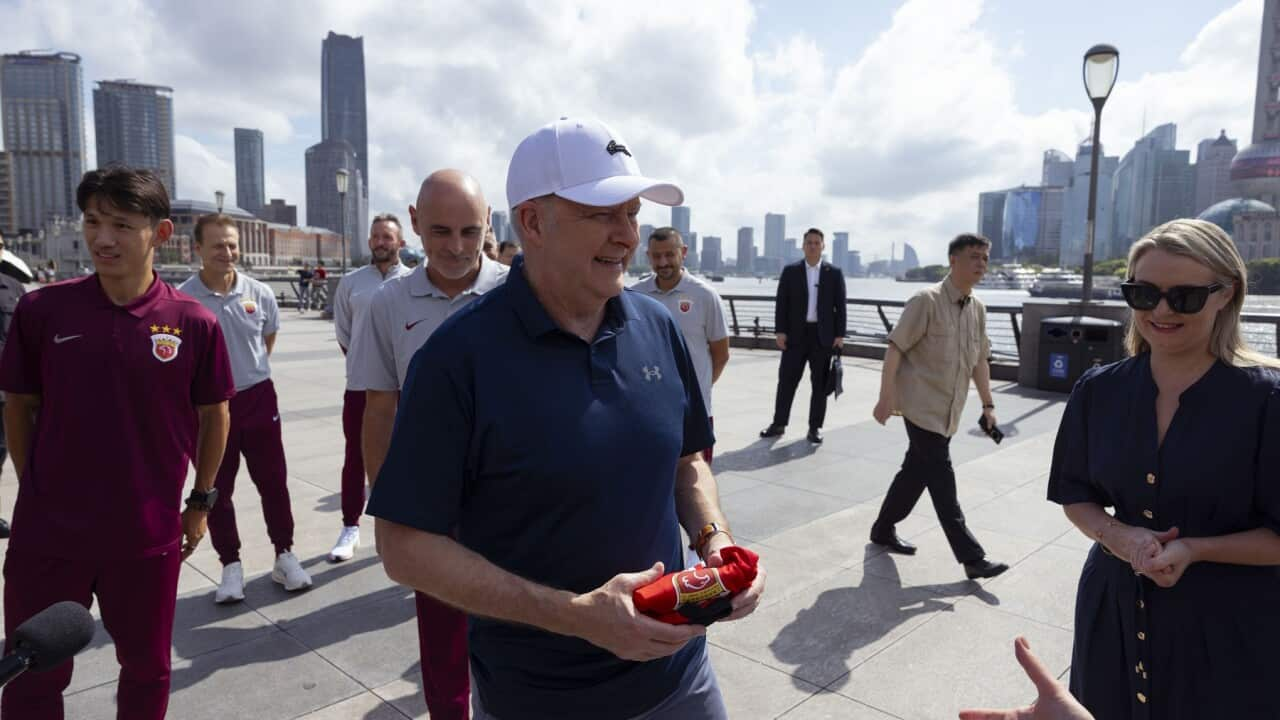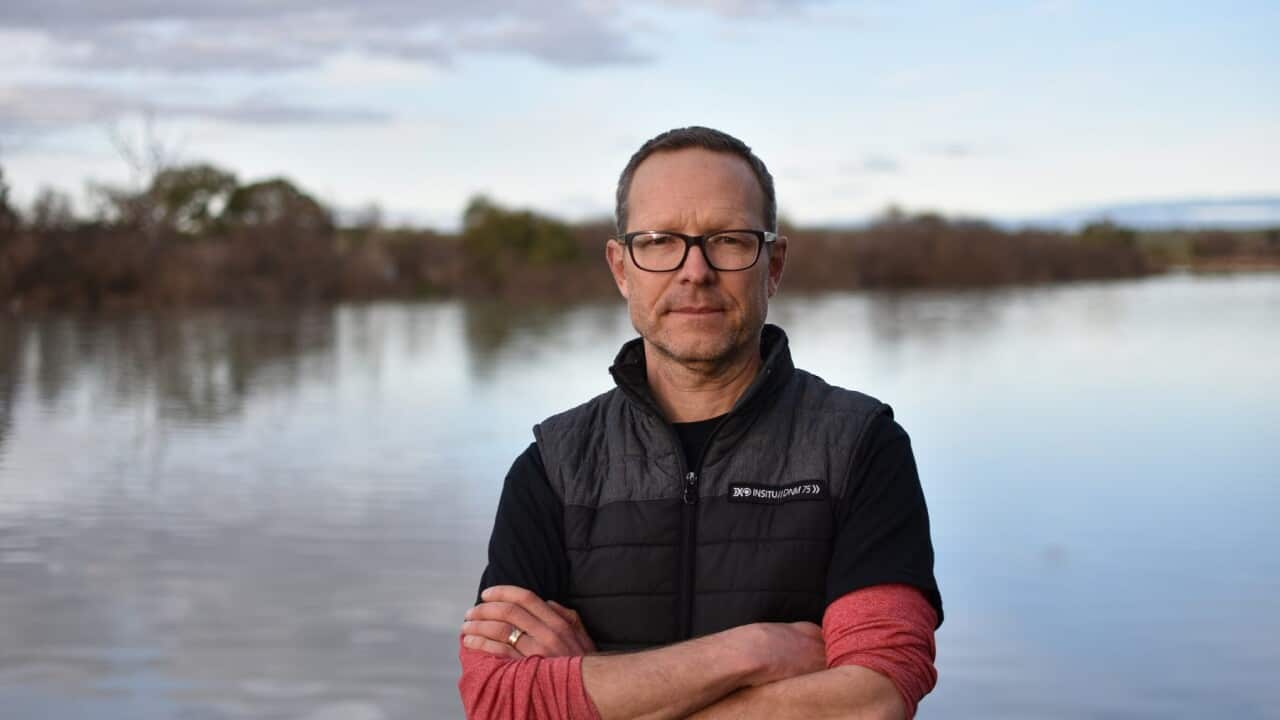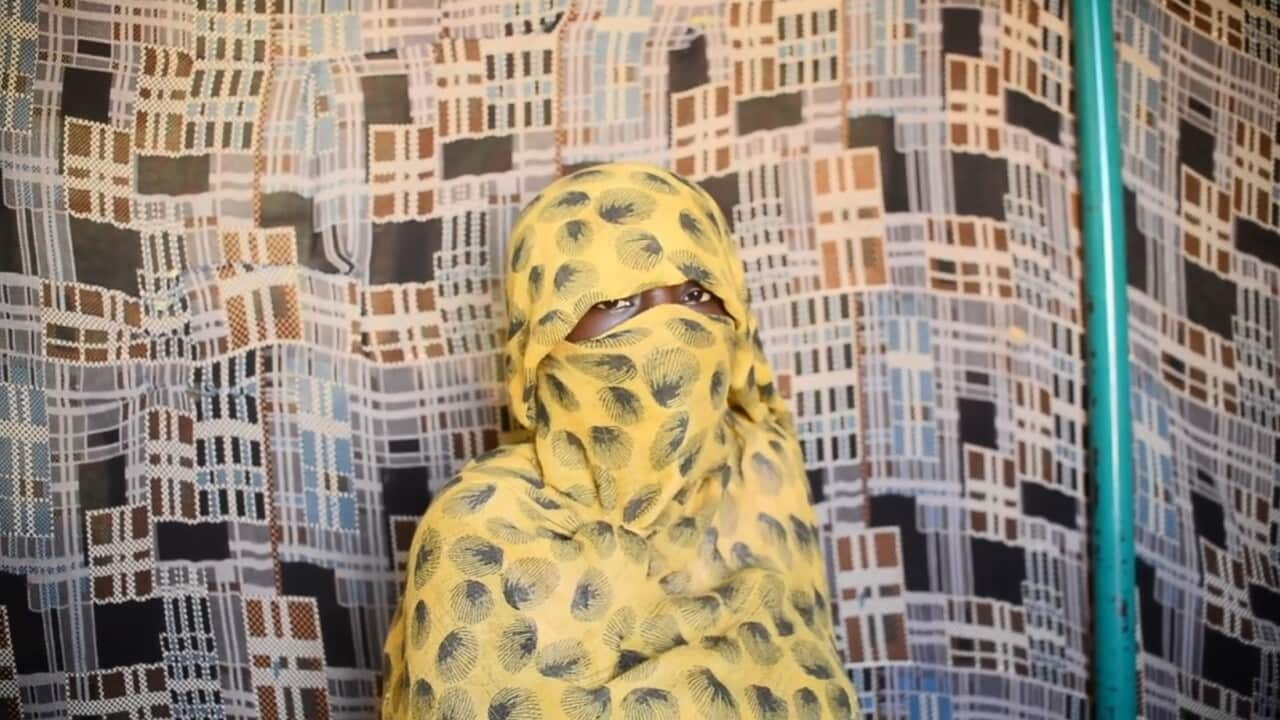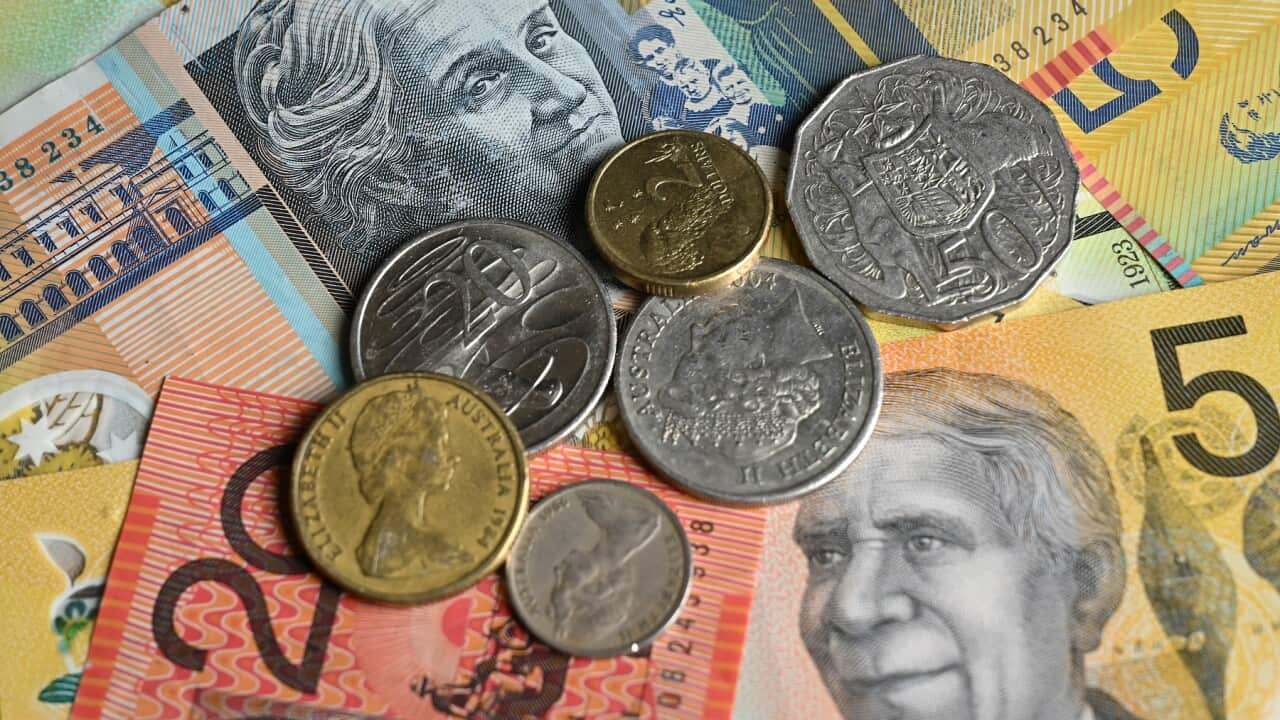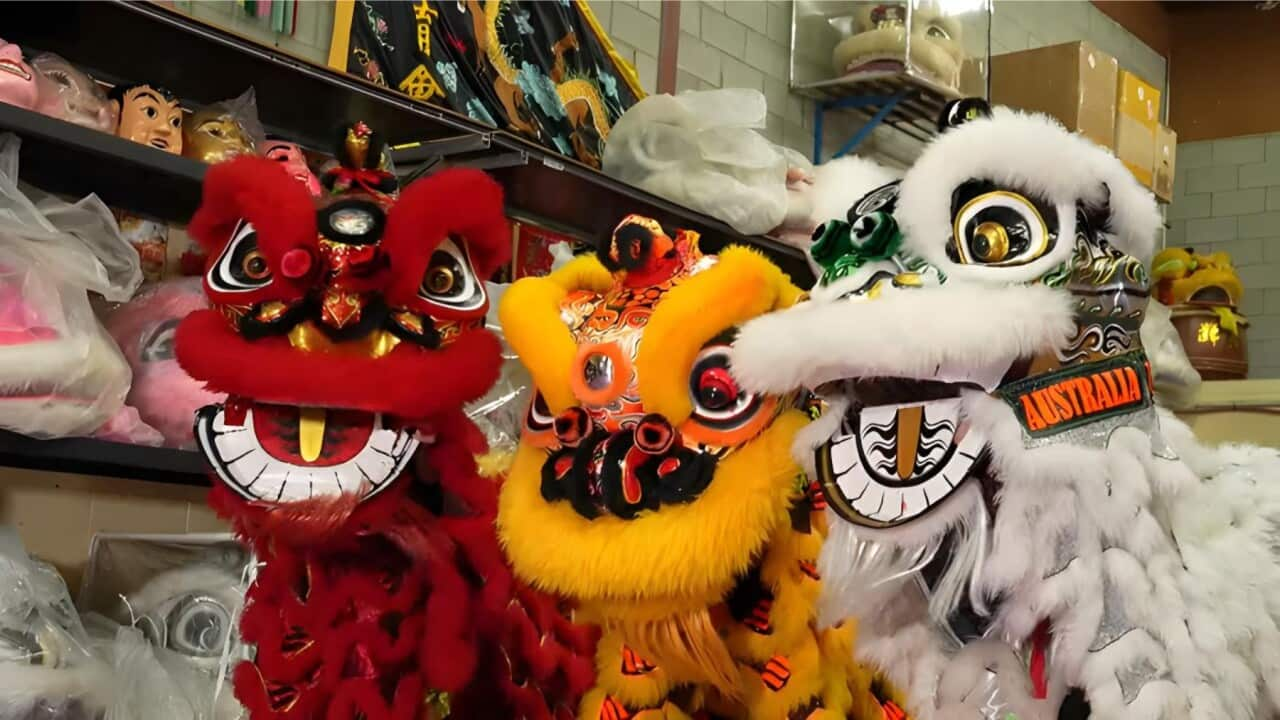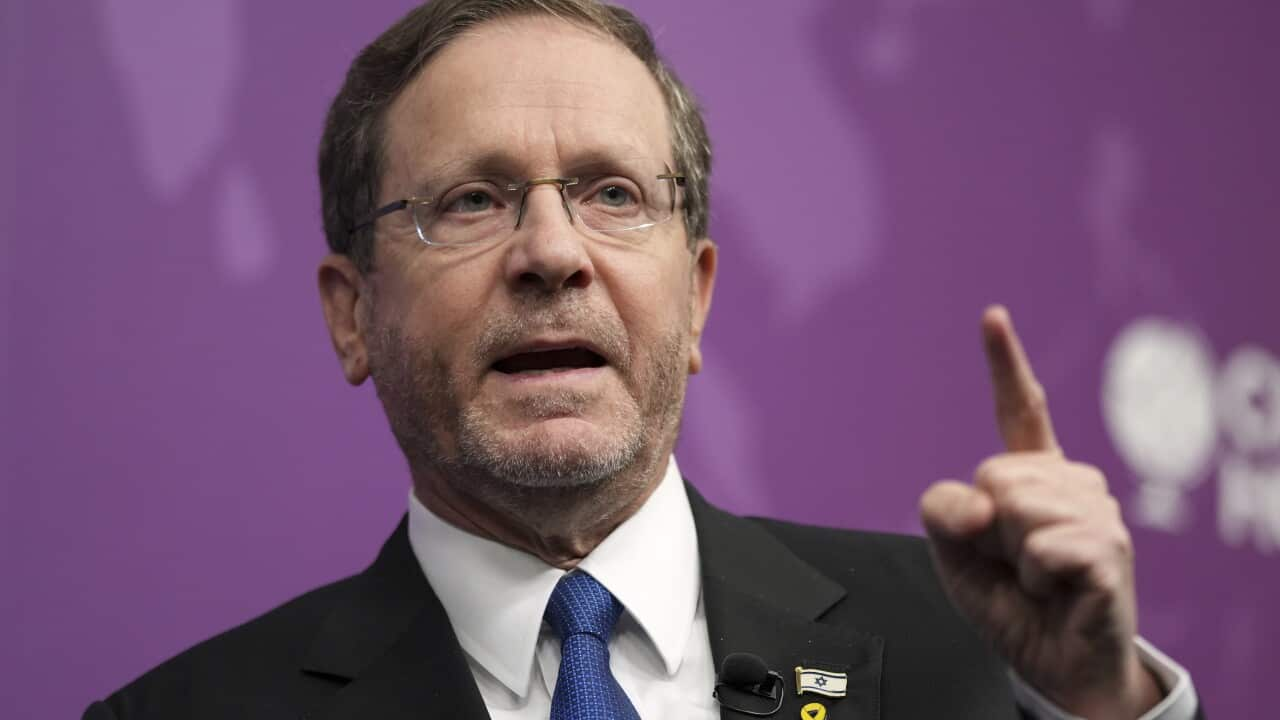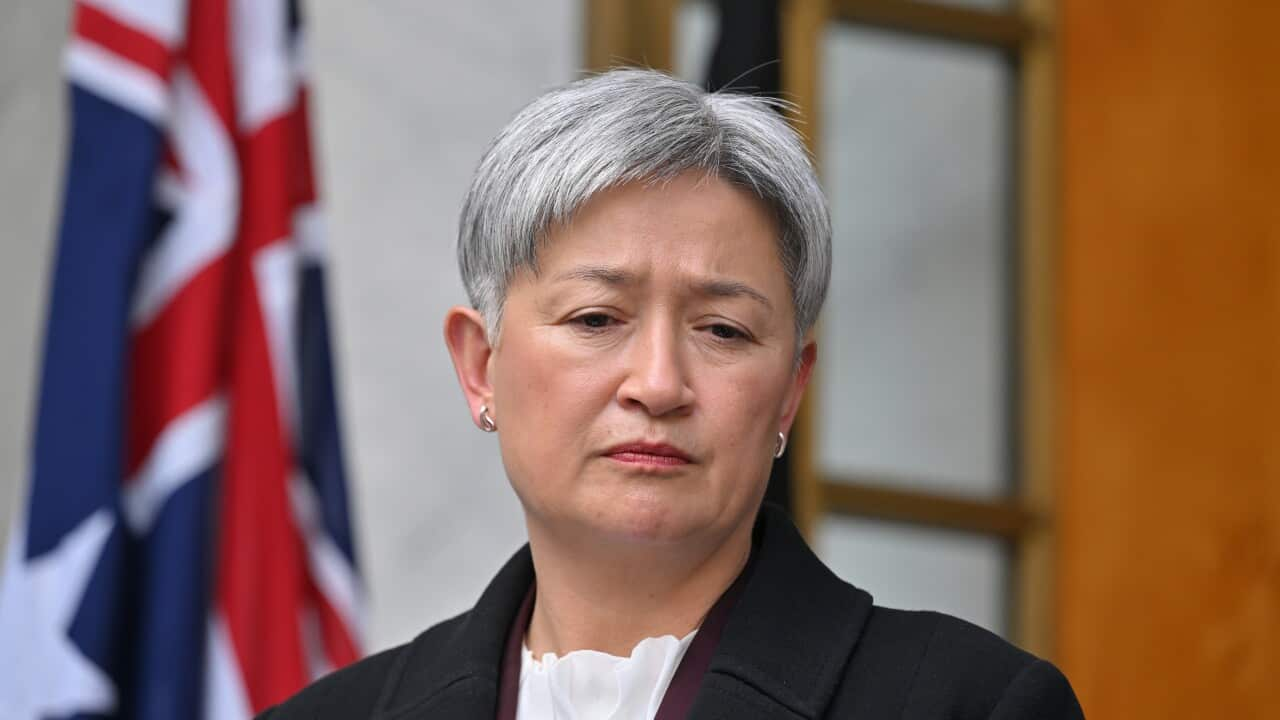Listen to Australian and world news, and follow trending topics with SBS News Podcasts.
TRANSCRIPT:
It was a day of positivity for the Australian Prime Minister as he begins a six day tour of China.
First there was a morning walk with former Socceroo Kevin Muscat along Shanghai's historic Bund promenade to promote the two nations' interpersonal links.
Muscat now coaches Shanghai Port FC, and became the first Australian manager to lead a Chinese Super League team to the premiership.
He presented the PM with a jersey to mark the occasion.
MUSCAT: "We'd like to present you with your own Shanghai FC shirt."
ALBANESE: "Thank you so much."
There was also a moment with officials from Tourism Australia, who have launched a new campaign to encourage more Chinese tourists to visit down under.
Chief executive Robin Mack says the campaign will feature Chinese actor Yu Shi.
"We always love to work with people who resonate with our target customers, and what Yu Shi is doing and bringing to our campaign, we're really excited."
A burgeoning Chinese middle class with a new found appetite for travel has flocked to Australia in recent decades, though recent tourist numbers remain below pre-pandemic levels.
Mr Albanese says increasing the numbers of Chinese tourists who come to our shores is in Australia's best interest.
"Last year alone Chinese tourists spent more than 9 billion dollars in Australia. That's jobs for Australians, particularly in regional communities. The agreement that was signed today will focus on growing these tourism numbers back to our 2019 record of 1.4 million and beyond."
Amid the positive rhetoric around Sino-Australian relations, Mr Albanese did his best to dodge the US-sized elephant in the room.
Australia and the United States have just begun joint military exercises in Queensland, alongside over a dozen other allies.
"Good afternoon everyone, and welcome to Talisman Sabre 2025."
Still, there's been tensions - not so much around the Chinese ships that Acting Defence Minister Pat Conroy has acknowledged to the ABC's Insiders programme are monitoring the military exercises offshore.
"It would be unusual for them not to observe it. And we'll adjust accordingly."
It's more around comments by US defence strategist Elbridge Colby - who is running the US' review into the AUKUS pact.
There has already been pressure for Australia to increase its defence spending - and Colby has reportedly pushed Australia and Japan to clarify what role they would play in a potential conflict with China over Taiwan.
"A lot of the biggest economies in our alliance network really aren't pulling their weight... In some sense perhaps our closest ally in the world - they've been with us even in our less advisable wars, is the way I put it."
Back in Australia, Pat Conroy has said Australia won't automatically follow the US into a future conflict, or pre-commit its troops.
"I don't disclose confidential discussions, but I make a couple of broad points. One, we don't engage in hypotheticals. We don't discuss hypotheticals. But secondly, the decision to commit Australian troops to a conflict will be made by the government of the day."
The PM himself has said nothing about Australia's position has changed.
"I think it's important that we have a consistent position, which Australia has had for a long period of time. We support the status quo when it comes to Taiwan. We don't support any unilateral action there."
Meanwhile the Opposition has called for the Prime Minister to make the most of his visit to China.
The PM faces a precarious task navigating Australia's complex relationship with its most important trading partner as his week-long visit begins in earnest.
After relations between China and Australia soured during the COVID-19 pandemic, Labor's election in 2022 precipitated a normalisation in trade and dialogue, with a return to regular high-level meetings.
But tensions remain fraught, with China's military assertiveness in the region an increasing concern for Canberra.
Nationals Leader David Littleproud has told Channel 9 the trip is an opportunity the PM can't waste in balancing these issues.
"This is a good thing the PM's in China but he's got to be prepared to have the tough conversations. When you've got his Foreign Minister raising the alarm bell over the strategic threat that China poses to Australia then you have to take that seriously and you have to be prepared to have those conversations when you meet with President Xi... And I think that is just as important as the trade talks we'll have. Because unfortunately if we're not safe, trade means nothing."
